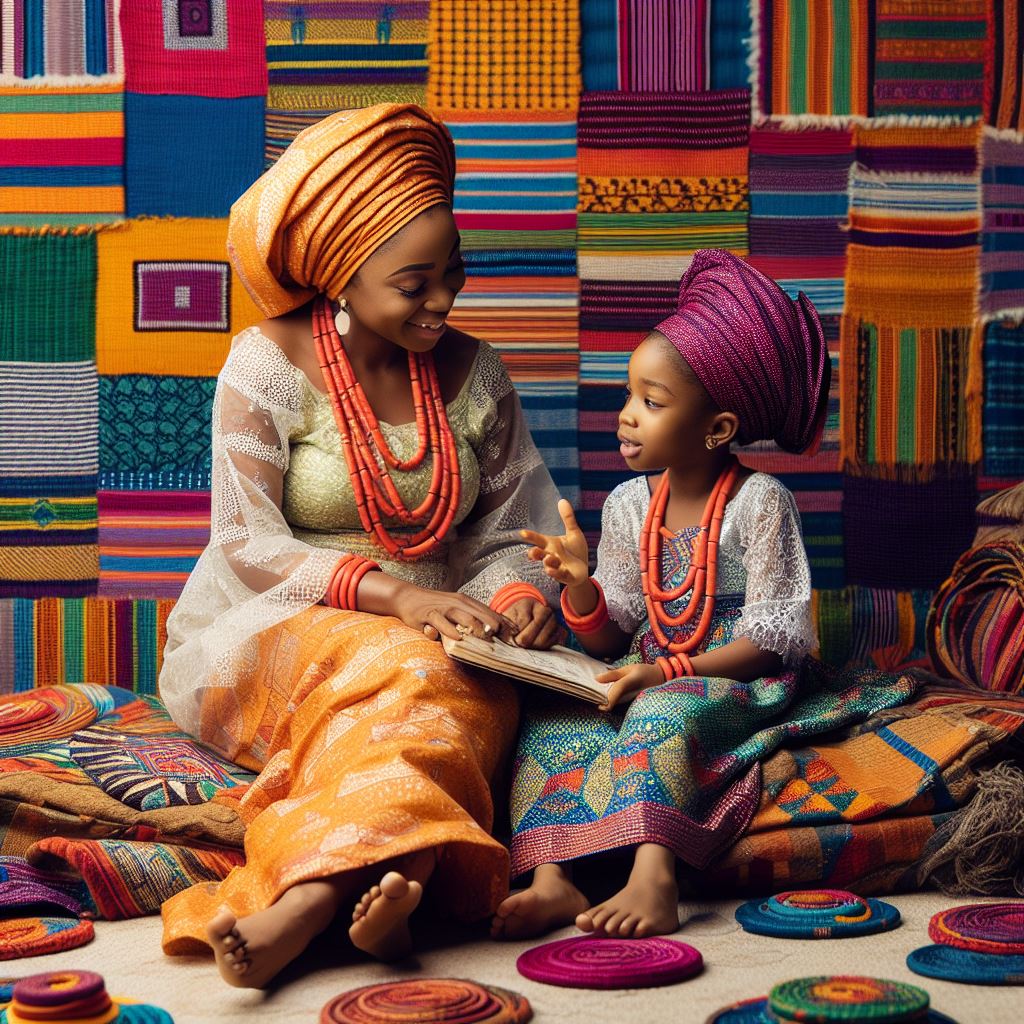Introduction
Gender equality is a fundamental principle that should be nurtured in Nigerian homes, as it contributes to a more inclusive and progressive society.
Gender equality at home creates a healthy environment where both men and women have equal opportunities to fulfill their potential.
Overview of current gender norms and inequality in Nigerian homes
In Nigerian homes, there are still prevalent gender norms that limit the roles and responsibilities of men and women.
Women are often expected to take care of household chores and child-rearing, while men are expected to be the breadwinners.
This imbalance of power and unequal distribution of responsibilities perpetuates inequality and restricts the freedom and development of individuals within society.
Gender norms also influence educational opportunities, with girls often receiving less investment and support compared to boys.
This perpetuates a cycle of inequality and limits the potential for women to participate equally in economic and social activities.
Furthermore, these gender norms contribute to a culture of violence against women, as women are often seen as subordinate and their voices and experiences are disregarded.
Changing these norms and promoting gender equality in Nigerian homes is crucial for fostering a society where both women and men can thrive and contribute to nation-building.
By challenging and dismantling these norms, we can create a more equitable and inclusive society for future generations.
In the following sections, we will explore practical ways to nurture gender equality in Nigerian homes, including education, communication, and equal distribution of chores and responsibilities.
Educational strategies for nurturing gender equality
In order to foster gender equality in Nigerian homes, it is crucial to implement educational strategies that address and challenge traditional gender norms and roles.
By equipping children with the knowledge and understanding of gender stereotypes, their impact, and the importance of equality, we can shape a more inclusive and fair society.
Teach children about gender stereotypes and their impact
Firstly, parents and guardians should teach children about gender stereotypes and their impact.
This involves discussing how society assigns certain expectations and characteristics to individuals based on their gender.
Parenting Made Just for You
Get personalized Parenting Solutions tailored to your child’s needs. Transform your parenting journey with expert guidance in 1-3 days.
Get StartedBy highlighting the negative consequences of such stereotypes, children can develop a critical perspective and challenge these biases.
Encourage open discussions about gender roles
Furthermore, it is important to encourage open discussions about gender roles.
By creating a safe and non-judgmental environment, children can freely express their thoughts and beliefs about what it means to be a boy or girl.
Engaging in conversations about gender can help dismantle rigid and harmful gender expectations and allow children to develop their own identities.
Promote inclusive language and positive reinforcement
Promoting inclusive language and positive reinforcement is another powerful strategy.
Using gender-neutral language and avoiding gender-specific roles when giving praise or feedback to children can help break down gender barriers.
It is essential to recognize and celebrate children’s abilities and accomplishments without limiting them based on their gender.
Expose children to diverse role models
Furthermore, exposing children to diverse role models is crucial.
Children should be provided with opportunities to interact and learn from individuals who challenge traditional gender norms.
This exposure can occur through literature, media, or real-life experiences, showcasing successful and influential figures who do not conform to conventional gender roles.
By presenting a variety of role models, children can envision a world where equality and diversity are valued.
In essence, educating children about gender stereotypes and their impact, facilitating open discussions, promoting inclusive language, and exposing children to diverse role models are essential steps towards nurturing gender equality in Nigerian homes.
By implementing these strategies, we can create a society that values and respects individuals regardless of their gender, ultimately leading to a more equitable and inclusive future.
Read: Gender Identity: A Guide for Nigerian Parents
Unveil the Perfect Name that Tells Your Family's Story
Let us help you find a name that embodies your family's values, traditions, and dreams. Our personalized consultation weaves cultural insights to create a name that's uniquely yours.
Get StartedPromoting equal responsibilities and opportunities
Gender equality is a fundamental principle that should be fostered in every Nigerian home.
By promoting equal responsibilities and opportunities, we can create a more equitable society for all. Here are some ways in which this can be achieved:
1. Encourage boys and girls to share household chores
Encourage boys and girls to share household chores, teaching them from a young age that responsibilities should be divided equally.
This will help break the stereotype that certain tasks are only meant for one gender.
2. Provide equal access to education and extracurricular activities
Provide equal access to education and extracurricular activities for both boys and girls.
Education is a powerful tool that can empower individuals to achieve their full potential.
Girls should be encouraged to pursue the same educational opportunities as boys, without any barriers or discrimination.
3. Promote equal career opportunities and aspirations
Promote equal career opportunities and aspirations. Encourage young boys and girls to dream big and pursue their passions, regardless of perceived gender norms.
By addressing the gender pay gap and ensuring equal opportunities for growth and advancement in the workplace, we can create a more inclusive society.
4. Challenge traditional gender roles and expectations
Challenge traditional gender roles and expectations. It is important to teach children that there are no limitations based on their gender.
Girls can aspire to be scientists, engineers, or leaders, while boys can pursue careers in traditionally female-dominated fields. Breaking down these stereotypes will benefit everyone in society.
Foster a culture of respect and understanding. Promote dialogue within the family about gender equality and why it is important.
Teach children to be sensitive to gender issues and to treat everyone with equal respect and dignity.
By incorporating these practices into Nigerian homes, we can raise a generation of young individuals who understand and value gender equality.
This will lead to a more inclusive and prosperous society, where everyone has an equal opportunity to succeed.
Nurturing gender equality in Nigerian homes is a responsibility that falls on everyone’s shoulders.
By promoting equal responsibilities and opportunities, encouraging boys and girls to share household chores, providing equal access to education and extracurricular activities, promoting equal career opportunities, and challenging traditional gender roles, we can make a positive impact on society.
It is through these steps that we can create a more inclusive and equal society for all Nigerians.
Read: Raising Boys and Girls: Tips for Nigerian Families
Fostering Mutual Respect and Empathy
In Nigerian homes, fostering gender equality begins with instilling mutual respect and empathy among family members.
By promoting a culture of understanding and acceptance, children learn to value and respect each other’s opinions.
This can be achieved through open discussions, where all family members are encouraged to share their thoughts and feelings.
Creating a safe and inclusive environment allows everyone to express themselves freely without fear of judgment or ridicule.
Parents, as role models, should lead by example, treating each other with love, respect, and kindness.
Children learn from observing their parents’ behavior and are more likely to imitate it in their own relationships.
Teaching Children to Value and Respect Each Other’s Opinions
To nurture gender equality, it is crucial to teach children the importance of valuing and respecting each other’s opinions.
This helps build a foundation of equality and inclusivity in Nigerian homes.
Parents can encourage their children to engage in meaningful conversations, asking for their opinions, and actively listening to what they have to say.
This not only promotes critical thinking but also teaches children to appreciate different perspectives and value diversity.
Being open-minded and receptive to different viewpoints helps create an environment where everyone’s voices are heard and respected, regardless of their gender.
Encouraging Empathy and Understanding Towards Different Perspectives
Developing empathy and understanding towards different perspectives is essential in nurturing gender equality in Nigerian homes.
Parents can encourage their children to put themselves in others’ shoes and consider how their actions or words may impact someone else.
This fosters empathy and helps children develop a sense of compassion and fairness.
Engaging children in discussions about various social issues can also broaden their horizons and expose them to different viewpoints.
This promotes empathy and a better understanding of the challenges faced by individuals of different genders.
Promoting Healthy Communication and Conflict Resolution Skills
Effective communication and conflict resolution skills are vital in creating a gender-equal environment within Nigerian homes.
Parents can teach their children the importance of clear and respectful communication, emphasizing active listening and expressing oneself assertively yet non-aggressively.
By providing children with problem-solving techniques, such as compromise and negotiation, parents empower them to resolve conflicts in a fair and respectful manner.
Addressing Bullying, Aggression, and Discrimination
To truly nurture gender equality, Nigerian homes must address issues of bullying, aggression, and discrimination head-on.
Parents should educate their children about the harmful effects of these behaviors and emphasize the importance of treating others with kindness and respect, regardless of gender.
Establishing zero-tolerance policies for bullying and discrimination within the household creates a safe and supportive environment for everyone.
In short, fostering gender equality in Nigerian homes requires a multi-faceted approach that encompasses fostering mutual respect and empathy, teaching children to value and respect each other’s opinions, encouraging empathy and understanding towards different perspectives, promoting healthy communication and conflict resolution skills, and addressing bullying, aggression, and discrimination.
It is through these efforts that Nigerian homes can become nurturing spaces of equality and inclusivity.
Read: Gender Roles in Nigeria: What Parents Should Know

Challenging harmful traditional practices
- Engage in open discussions about the negative effects of harmful practices.
- Encourage community dialogues to question and challenge these practices.
- Promote education campaigns to raise awareness about the harms of such practices.
- Support local leaders and elders who are willing to advocate for change.
- Empower women to voice their concerns and demand equal treatment.
Addressing cultural practices that perpetuate gender inequality
- Create spaces for dialogue to explore the origins and impact of these practices.
- Encourage critical thinking and questioning of cultural norms related to gender.
- Promote cultural events that celebrate gender equality and challenge stereotypes.
- Support initiatives that promote women’s involvement in decision-making processes.
- Provide opportunities for men and boys to learn about the benefits of gender equality.
Challenging sexist beliefs and stereotypes
- Implement educational programs that promote respectful relationships and equality.
- Provide platforms for women to share their success stories to inspire others.
- Support media campaigns that challenge gender stereotypes and promote equality.
- Encourage men and boys to actively participate in dismantling stereotypes.
- Promote inclusive language and challenge derogatory terms used against women.
Advocating for legal protection against gender discrimination and violence
- Campaign for the enforcement of existing laws that protect women’s rights.
- Advocate for the implementation of legal measures to address gender-based violence.
- Support organizations working towards legal reforms to ensure gender equality.
- Empower women to report cases of violence and discrimination and seek legal redress.
- Collaborate with law enforcement agencies to improve responsiveness to gender-related crimes.
Collaborating with community organizations and support groups
- Create partnerships with NGOs and community-based organizations working on gender equality.
- Establish support groups for women and girls to share experiences and seek advice.
- Organize capacity building workshops on gender equality and women’s rights.
- Partner with religious and cultural leaders to promote gender equality teachings.
- Encourage the involvement of men’s groups in advocating for gender equality.
By actively taking these actions, Nigerian homes can become nurturing environments for gender equality.
Read: Understanding Gender: Basics for Nigerian Parents
Conclusion
It is crucial for Nigerian homes to prioritize and nurture gender equality.
By recapitulating key strategies, such as promoting open communication and challenging traditional gender roles, households can create egalitarian environments.
Moreover, parental influence plays a significant role in shaping children’s attitudes and beliefs.
Therefore, parents must actively engage in fostering an environment that promotes gender equality.
To ensure a more equal society, it is essential for readers to take action within their own homes.
By prioritizing gender equality and challenging societal norms, we can create a ripple effect that extends beyond our households.
Let us be the change-makers and advocates for gender equality, starting right from our own homes.
Together, we can build a society that values and respects the rights of every individual, regardless of their gender.




